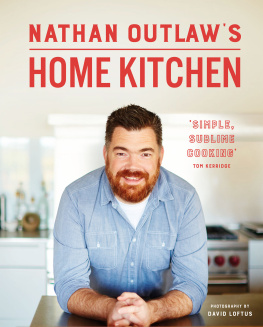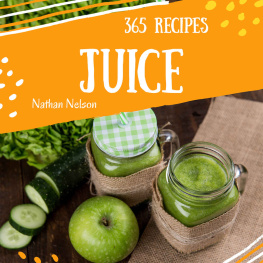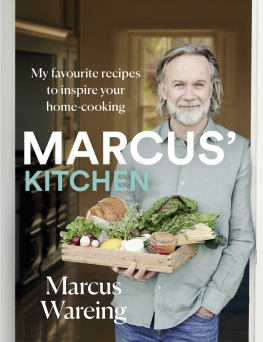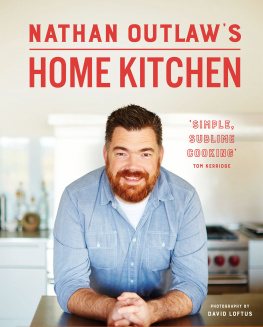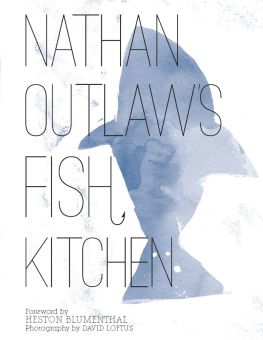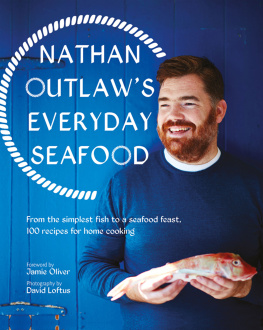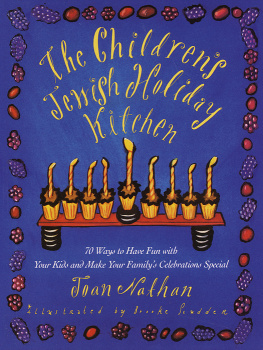I set out to write this book with the intention of providing a wide selection of recipes that could genuinely be used every day whether youre a beginner or have some knowledge of cooking. I also wanted it to include all of my favourite recipes that I cook at home the ones my family and friends love. I see it as a compendium that my children will use as they become older and start to cook independently. Hopefully, it will offer you plenty of inspiration too!
As Im known for my seafood cookery, you might be surprised that this book covers meat, poultry, vegetables and desserts, as well as fish. At home and throughout my early career as a chef Ive cooked all sorts of things. It comes as a shock to some that I can actually cook meat! As a young chef, you spend time on each section in a kitchen, learning to prepare and cook everything. Its much later that you choose to specialise. I became fascinated by fish and seafood and was lucky enough to get a job with Rick Stein at The Seafood Restaurant in Padstow. But that doesnt mean I never cook anything else.
On leaving college, my first real job was at the Intercontinental Park Lane Hotel in London, working under the late Peter Kromberg. It was an exciting start for a novice chef, as I had the opportunity to learn a lot about Asian and Middle Eastern cookery from some highly skilled chefs. Every kitchen experience is a learning curve and the knowledge I have to draw on now is a culmination of all those experiences both good and bad!
Ive found one of the most trying things about cooking is working out which items of equipment to buy. As a young chef, I made some costly mistakes until I realised that you really dont need every new gadget that comes onto the market. Ive also learnt the hard way that buying cheap usually costs more in the long term because you end up having to purchase everything at least twice.
When I was compiling these recipes, I cooked all of them in an ordinary kitchen, using a domestic oven and hob, to make sure theyll work well for you at home. Ive also made certain the recipes call for the minimum of equipment and that the ingredients used are those you can find easily in any decent supermarket or on-line, if thats the way you shop. Above all, I want this to be a book that youll find effortless to use, and pick up time and again.
If you bought this book with the intention of learning to cook or progressing your cooking, you may well be in the throes of setting up or improving your kitchen.
This in itself can be a nightmare so Im offering some advice on equipping your kitchen with the items youll really need:
Buy the best set of pans you can afford, in various sizes. Try to choose some with metal handles that can be used in the oven and on the hob. Non-stick pans are great but dont buy cheap ones the coating is likely to come off!
Invest in a decent set of knives. Look for good, solid blades and make sure the knives are comfortable when you hold them. They also need to have some weight to them, or they will be too flimsy and difficult to handle.
Buy a good-quality food processor with attachments to chop small amounts (or invest in a robust mini-chopper too). A powerful stick blender with attachments is also very useful. You dont need a massive food processor with endless attachments that takes up a lot of work surface, unless you are catering for a crowd every day.
Youll need a good-quality electric hand whisk. A freestanding mixer isnt essential, though you might like one if you intend to do a lot of baking.
Buy some good-sized, solid chopping boards, at least one plastic and one wooden. Keep a separate plastic board for fish.
Choose a selection of good, solid oven and grill trays of different sizes (make sure theyll fit into your oven!). Dont buy cheap, thin baking sheets or trays, as theyll bend and buckle in a very hot oven.
Get a selection of different-sized plastic boxes with lids and a set of mixing bowls, preferably stainless steel, which is more durable than glass or china, keeps contents cold or hot whichever you need, and can be used over a bain-marie.
Youll also need a decent set of digital scales, some measuring spoons, a good pair of kitchen scissors, a microplane grater and a flexible, heat-resistant silicone spatula. Add to this a few wooden spoons, and a set of cooking utensils (large metal spoon, fish slice, slotted spoon, ladle, meat fork, tongs, potato masher, wire balloon whisk).
Buy good-quality cling film, non-stick baking parchment, strong absorbent kitchen paper, disposable piping bags and some disposable gloves for smelly jobs.

